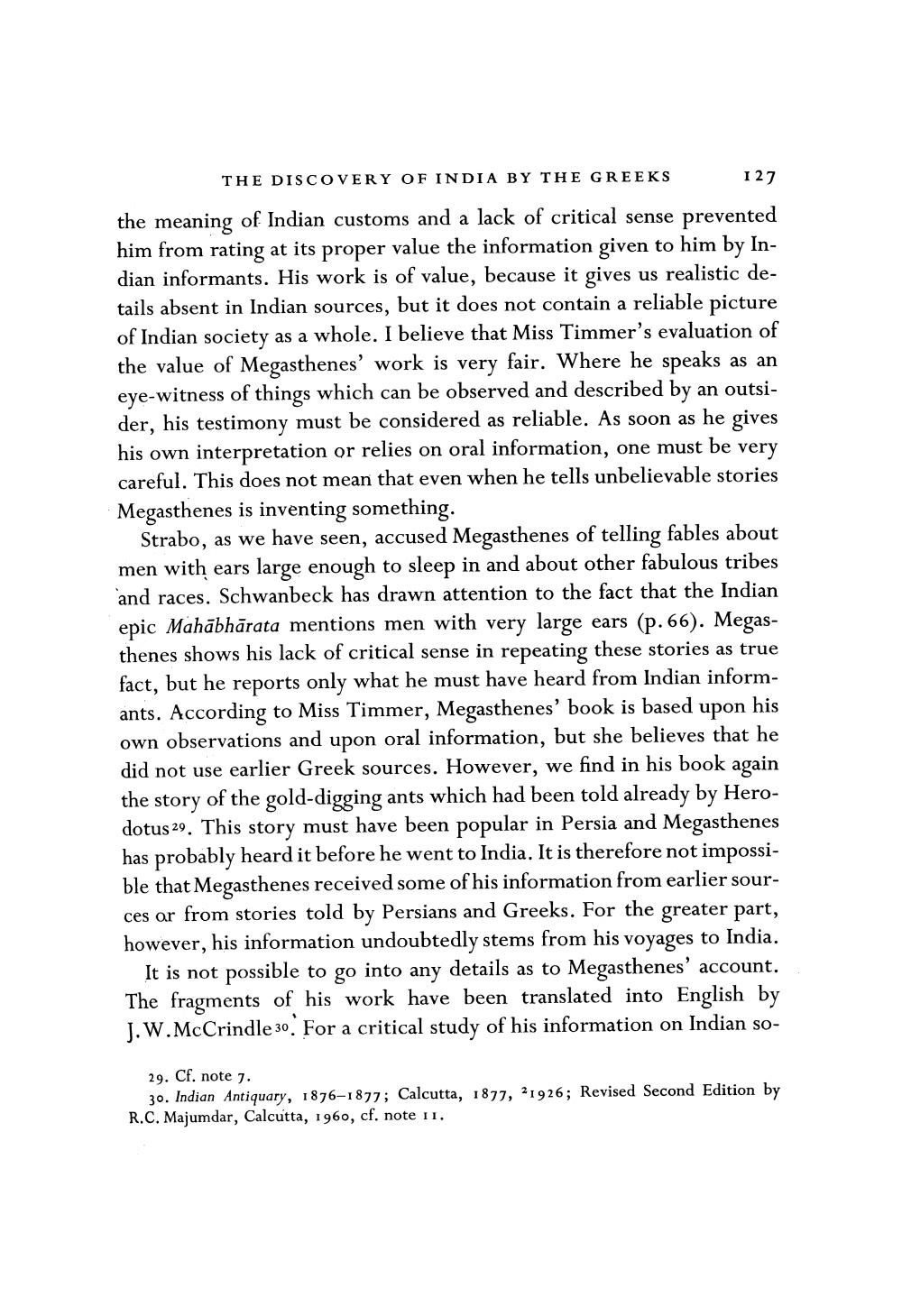________________
THE DISCOVERY OF INDIA BY THE GREEKS
127
the meaning of Indian customs and a lack of critical sense prevented him from rating at its proper value the information given to him by Indian informants. His work is of value, because it gives us realistic details absent in Indian sources, but it does not contain a reliable picture of Indian society as a whole. I believe that Miss Timmer's evaluation of the value of Megasthenes' work is very fair. Where he speaks as an eye-witness of things which can be observed and described by an outsider, his testimony must be considered as reliable. As soon as he gives his own interpretation or relies on oral information, one must be very careful. This does not mean that even when he tells unbelievable stories Megasthenes is inventing something.
Strabo, as we have seen, accused Megasthenes of telling fables about men with ears large enough to sleep in and about other fabulous tribes and races. Schwanbeck has drawn attention to the fact that the Indian epic Mahābhārata mentions men with very large ears (p. 66). Megasthenes shows his lack of critical sense in repeating these stories as true fact, but he reports only what he must have heard from Indian informants. According to Miss Timmer, Megasthenes' book is based upon his own observations and upon oral information, but she believes that he did not use earlier Greek sources. However, we find in his book again the story of the gold-digging ants which had been told already by Herodotus 29. This story must have been popular in Persia and Megasthenes has probably heard it before he went to India. It is therefore not impossible that Megasthenes received some of his information from earlier sources or from stories told by Persians and Greeks. For the greater part, however, his information undoubtedly stems from his voyages to India.
It is not possible to go into any details as to Megasthenes' account. The fragments of his work have been translated into English by 1.W.McCrindle 30. For a critical study of his information on Indian so
29. Cf. note 7.
30. Indian Antiquary, 1876-1877; Calcutta, 1877, 21926; Revised Second Edition by R.C. Majumdar, Calcutta, 1960, cf. note 11.




